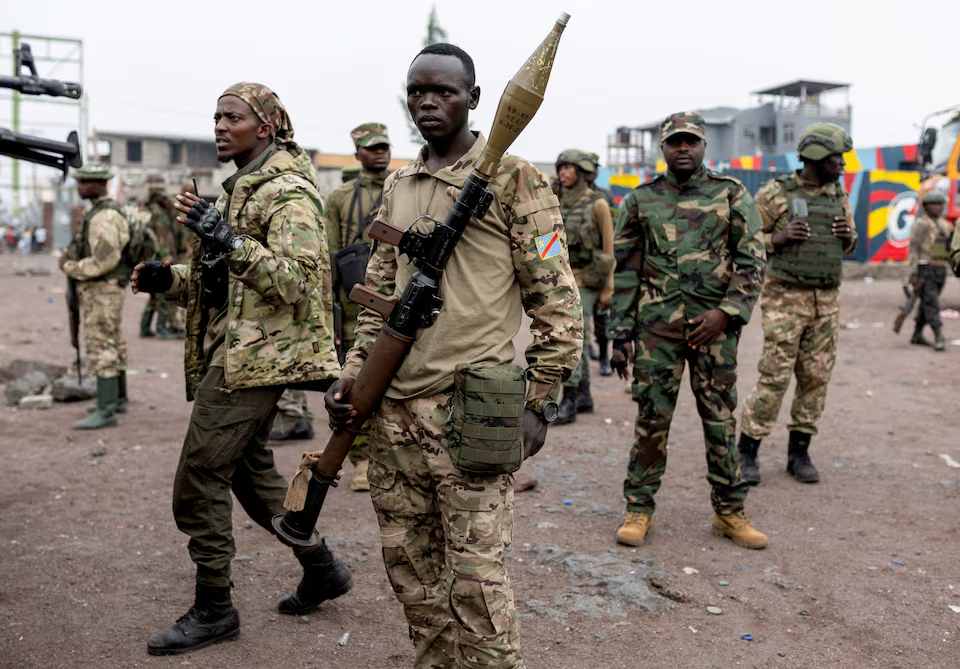Congolese troops with support from Burundi’s army appeared on Friday to be holding back a push south by Rwandan-backed rebels seeking to expand their grip on eastern Congo in a week-old advance that has raised fears of a broader regional conflict.
Earlier this week the Tutsi-led M23 rebels seized Goma, the largest city in the east of Democratic Republic of Congo which is home to lucrative gold, coltan, and tin ore mines.
They then shifted their focus to Bukavu in neighbouring South Kivu province and made some progress toward that objective.
But since then, the Congolese army and its allies have succeeded in holding the rebels back, three sources including South Kivu Governor Jean-Jacques Purusi Sadiki told Reuters.
One person with direct knowledge of the fighting said a force of around 1,500 including Congolese troops, Burundian soldiers, and local militia fighters had deployed to defend the town of Nyabibwe some 50 km (30 miles) north of Bukavu.
The source declined to be identified for security reasons.
Residents of Bukavu, which last fell to rebels in 2004, said people were stocking up on food, torches, and batteries or fleeing towards the Burundi border.
Civilians recruited by authorities to defend the city were jogging around a sports field and lining up for military salutes on Friday.
“We have been suffering for a long time; suffering for so long because of the aggressors who are our neighbours,” said math teacher Habamungu Mushagalusa, among a group of about 200 recruits.
“We are here to defend our homeland until death.”
Kigali has rejected the findings of UN investigators that it has sent thousands of soldiers and equipment into Congo to support M23.
The UN said on Thursday that there were reports of Rwandan forces crossing into Congo in the direction of Bukavu.
Rwanda did not immediately respond to a request for comment.
Well-trained and professionally armed, M23 is the latest in a long line of Rwandan-supported, Tutsi-led rebel movements to emerge in Congo’s volatile eastern borderlands in the wake of two successive wars stemming from Rwanda’s 1994 genocide. (Reuters/NAN)









